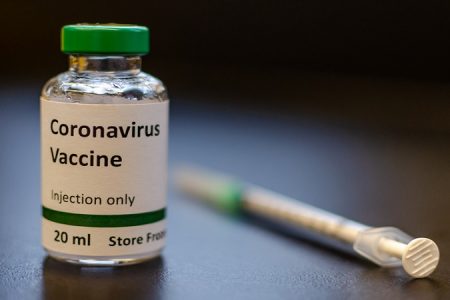- Britain ceded AstraZeneca’s COVID-19 vaccine a referendum of trust on Friday.
- The UK government has acquired 100 million shots of the vaccine, developed by AstraZeneca and Oxford University.
- Britain’s Medicines and Healthcare products Regulatory Agency (MHRA) commenced an accelerated “rolling review” of the vaccine at the start of this month as data comes in on security and efficiency.
THD NewsDesk, New Delhi: Britain ceded AstraZeneca’s COVID-19 vaccine a referendum of trust on Friday when it claimed its control to evaluate the shot for a rollout after authorities raised inquiries around trial data and the company stated it might run another study to assess effectiveness.
The UK government has acquired 100 million shots of the vaccine, developed by AstraZeneca and Oxford University, the most it has requested of any shot to combat a pandemic that has destroyed more than 1.4 million people globally.
The British drugmaker requires four million shares to be accessible in the nation by the end of next month, and Health Secretary Matt Hancock aims for a rollout to begin before Christmas.
“We have formally asked the regulator to assess the Oxford/AstraZeneca vaccine, to understand the data and determine whether it meets rigorous safety standards,” Hancock said.
“This letter is an important step towards deploying a vaccine as quickly as safely possible.”
Britain’s Medicines and Healthcare products Regulatory Agency (MHRA) commenced an accelerated “rolling review” of the vaccine at the start of this month as data comes in on security and efficiency.
In the global race to produce vaccines against COVID-19, AstraZeneca’s contestant is observed as contributing one of the best hopes for many developing countries because of its more moderate price and ability to be carried at average fridge temperatures.
Executives in the Philippines said on Friday they would obtain 2.6 million AstraZeneca shots – the country’s first stock dealings for a COVID-19 vaccine – and were negotiating a viable acquisition of an additional one million doses.
The statements issued after some specialists raised apprehensions about the robustness of outcomes exhibiting the shot was 90 per cent efficient in a sub-group of trial shareholders who, by error initially, received a half dose accompanied by a full amount.
AstraZeneca said the administering of the half dose had been examined and accredited by autonomous data security monitors and the UK regulator, adding that the regulator openly verified there was “no concern”.
The accomplishment rate of 62 per cent when the full dose was given doubly, as it was for most shareholders, is above the 50 per cent required by US regulators. Europe’s drug regulator has said it will not set a minimum level of potency.
If a vaccine has an effectiveness of 50 per cent, it determines that if 100 people who haven’t been exposed to the virus are immunised with it, on average, 50 of them will not get infected.
A spokesperson for Oxford University said added data from worldwide trials would assist researchers in estimating the vaccine’s productiveness amidst a more distinct population.
Pauline Londeix, the co-founder of French drug transparency group OT-Med, said apparent confusion over the trial results was “very problematic for public confidence in vaccines”.
“It has largely to do with the race drugmakers are engaged in currently, which leads them to present vaccine candidates in the best possible way and not release full protocols and results. It is the opposite of what is needed in our view.”
Nonetheless, Britain’s top science adviser said the interim results showed the AstraZeneca vaccine was successful.
“The headline result is the vaccine works, and that’s very exciting,” Patrick Vallance said on Thursday during a news conference with Prime Minister Boris Johnson.
Only 2,741 volunteers were in the sub-group of the AstraZeneca-Oxford trial that gave the 90 per cent efficacy read-out, a fraction of the tens of thousands in practices that resulted in the above-90 per cent efficacy data released earlier this month for Pfizer-BioNTech’s and Moderna’s vaccines.
“Sub-group analyses in randomised controlled trials are always fraught with difficulties,” said Paul Hunter, a professor of medicine at the Britain’s University of East Anglia.
“To have faith in the results,” Hunter added, any sub-group analysis “should be sufficiently powered” with large numbers of volunteers.
A peer-reviewed analysis of data from the AstraZeneca-Oxford trial will be published in The Lancet in the coming weeks.
The US Food and Drug Administration (FDA), has not commented on AstraZeneca’s vaccine trial results. The European Medicines Agency said on Thursday it would “assess data on the efficacy and safety of the vaccine in the coming weeks once they have been received from the company”.
“There are several variables that we need to understand, and what has been the role of each one of them in achieving the difference in efficacy,” Slaoui told a briefing on Tuesday.
